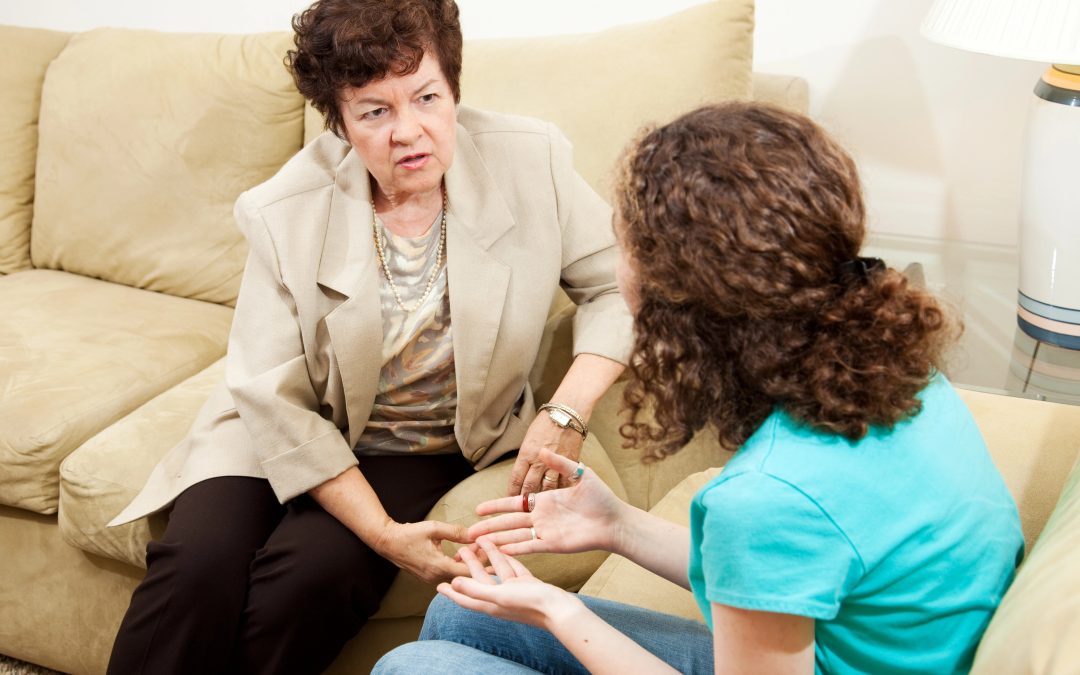
by Cindy Heilman | Build Communities of Belonging, Leadership, Resident Centered Dining Service

Do your residents ever make a complaint or suggest the food service?
Do you take the time to listen? Or do you try to change their mind before they even finish saying what they have on their mind?
It costs absolutely nothing to pause, stop what you are doing, look them in the eye, and listen.
Whatever you were doing can wait a minute or two. It can. But it could cost a great deal if your resident doesn’t get the satisfaction that their thoughts are important to you (and the company) if you don’t. You don’t want to have a resident move to a different community because they feel invisible to you.
Residents must feel they are valued, and their opinions are valued by you and your company.
You also don’t have to agree with what they are saying. You do have to acknowledge their comments. You can sympathize with them, offer to carry their thoughts to someone who can help, and you can certainly thank them for telling you.
They must have confidence in you, or they would have gone to someone else.
Think about that. It is building relationships by way of communication and a responsibility that is part of your training in the culture of person-centered care. Let your elders know that they matter to you and your company. Your consideration will create a loyal resident, instill a sense of belonging, and show respect. It will also demonstrate the excellent training your company has provided for you.
Communication is at the heart of the culture change taking place in the business of Aging Services.
Determination and persistence in practice at training sessions pay off.
Cultural change in your community marries healthcare with hospitality.
Kind Dining® knows the results for a company that invests in every employee by supplying excellent training. Educated employees are more efficient, have positive attitudes, are prepared to take on responsibility, and know they are valued. Properly trained employees work as a team and are aware of rules and codes of conduct.
They are more likely to adhere to health codes, so you pass surprise inspections with flying colors. Everyone wins when employees have proper training and listening is part of that training.
Kind Dining® is approved for 11 Continuing Education Units for RDNs and NDTRs. CEUs are from the Commission on Dietetic Registration (CDR), the credential agency for the Academy of Nutrition and Dietetics. This includes 1 Ethics unit for the entire series.
Be ♥ Kind Tip: Do you demonstrate your excellent training?

by Cindy Heilman | LeaveBlank

During a coffee break at the Senior Living Community, Lillian was chatting with her food serving team. “Whew! Thankfully, today is going along much smoother than yesterday! I don’t remember having a day like that when everything that could go wrong did go wrong! It’s not through anyone’s fault or anything major. It’s just a string of little incidents being off-center. It seemed things broke or just went the opposite way of right.” She laughed, happy that they all survived the day before.
“Yes,” Don said. “I agree and when I thought about it last night, I realized how the lessons practiced in our training sessions helped to pull us out of what could have been an even worse day than it was. Does that make sense to anyone else?”
“It does to me. I always carry the statement of ‘Working Smarter, not Harder’ in my head. “Mary piped in. “Yesterday proved how good training can save the day.”
“Now that you mention it, my favorite phrase learned is “Hospitality is Healthcare.” It makes me feel like I am doing something important that isn’t always obvious but is always there, underneath, and important. My caring makes a difference. We make a difference.”
Lillian smiled back. “I like ‘Happy dining equals happy residents equals a more successful senior care community.’ I think our teamwork and camaraderie help us achieve that vision. Teamwork was obvious yesterday and is a part of our workdays. We all use kindness, almost as a badge of honor now, if we didn’t before. We don’t mention it, but it makes us the caring workers. I’m sure you have all noticed the difference in our working together since the woman whose name I didn’t mention left. Some people don’t seem to want to change, grow, and learn to love coming to work.”
Your staff’s behavior will determine the kind of community you have, and your training program will determine the kind of staff you have. Training that does not change behaviors, encourage responsibility, and move your food-serving teams towards caring wastes time and money.
Kind Dining® training curriculum was designed for your employees to embrace learning, practice, and results. It allows those employees to build teams that work together and make your community the place seniors want to live.
Kind Dining® asks what goals your community staff intends to achieve this year. Are you working to improve service quality standards or build confident, caring teams?
Be ♥ Kind Tip: Stand out from the competition and win industry awards with good training.



